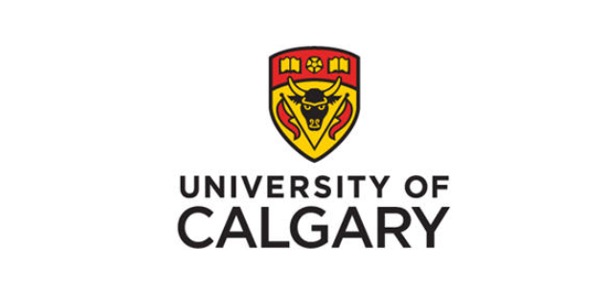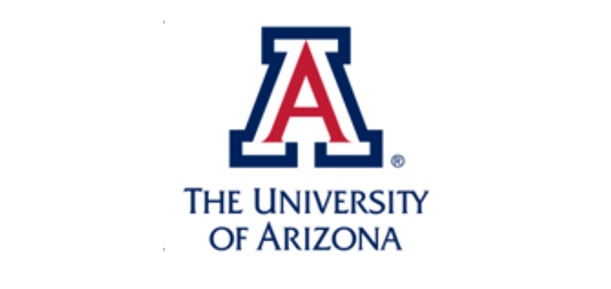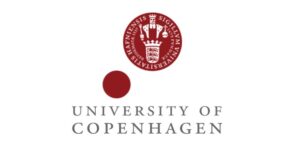If you’re a PhD degree holder and seeking postdoctoral fellowships, Max Planck Institutes, Germany has several online applications open. Explore the opportunities across diverse research areas and submit your application soon.
1. Postdoctoral Job
Summary of Postdoctoral Fellowship:
The Max Planck Institute for Plasma Physics in Garching offers an opportunity to participate in a post doctorate program to perform research activities in the division Tokamak Scenario Development (E1) which operates the ASDEX Upgrade (AUG) tokamak. Boronization, i.e. the coating of surfaces with boron-hydride layers is a key technique to provide stable plasma start-up and high performance operation conditions. With this technique comprehensive experience exists for AUG´s operation domain, however, an evaluation in view of the specific ITER fusion reactor requirements is still missing.
Application Deadline: 02.06.2024
2. Postdoctoral Job
Summary of Postdoctoral Fellowship:
The project “ICON for coupled carbon cycle climate modelling (ICON-4C4M)” funded through the Extramural Funding programme of the German Weather Service (DWD) aims to integrate a novel representation of terrestrial (project part “land“ at MPI-BGC) and a state-of-the-art marine (project part “ocean” at University Hamburg) biogeochemistry into the ICON Earth system model. The project will contribute to an enhanced representation of the interactive carbon cycle in ICON for climate science applications in the context of CMIP7 and C4MIP. Specifically, this project aims to contribute to a better understanding of the transient climate response to anthropogenic emissions and the implications for carbon-cycle feedbacks for atmospheric CO2 and climate change under future emission pathways.
Application Deadline: May 31, 2024
Follow us for daily updates!
Telegram
3. Postdoctoral Job
Summary of Postdoctoral Fellowship:
The Carbon2Chem project, which is funded by the federal ministry of education and research, focuses on the success of the “Energiewende”. Especially exhaust gases from steel mill plants are planned to be used as synthesis gas for chemical processes. A close collaboration with numerous partners from chemical industry, steel industry, energy partners as well as academic partners will be mandatory. The position is to be filled as soon as possible and is initially for one year with the possibility of an extension to the follow-up project. For the work, located in our laboratory in Oberhausen, we are searching for a Postdoctoral Fellow (f/m/d) – Heterogeneous catalysis.
Application Deadline: May 31, 2024
4. Postdoctoral Job
Summary of Postdoctoral Fellowship:
The Carbon2Chem project, which is funded by the federal ministry of education and research, focuses on the success of the “Energiewende”. Especially exhaust gases from steel mill plants are planned to be used as synthesis gas for chemical processes. A close collaboration with numerous partners from chemical industry, steel industry, energy partners as well as academic partners will be mandatory. The position is to be filled as soon as possible and is initially for one year with the possibility of an extension to the follow-up project. For the work, located in our laboratory in Oberhausen, we are searching for a Postdoctoral Fellow (f/m/d) – Gas analysis.
Application Deadline: May 31, 2024
5. Postdoctoral Job
Summary of Postdoctoral Fellowship:
The Department of NanoBiophotonics headed by Prof. Stefan W. Hell is a world leader inventing and utilizing optical microscopes with resolution at the nanometer scale to advance natural sciences. A key research initiative of the Department is the investigation and improvement of reversibly switchable fluorescent proteins. Together with the Research Group of Prof. Dr. Stefan Jakobs, we invite applications for a Postdoctoral Researcher (f/m/d) “Fluorescent Proteins for Live-Cell MINFLUX Microscopy”.
Application Deadline: 02.06.2024
6. Postdoctoral Job
Summary of Postdoctoral Fellowship:
Drylands cover ~45% of global land area, are home to ~40% of the global population and harbor more than 20% of global biodiversity. However, drylands face significant challenges from climate change (e.g. changes in temperature and precipitation patterns) and intensified anthropogenic activities and disturbance (e.g. over-grazing) leading to land degradation and desertification. Despite the severe consequences, our ability to accurately assess and predict dryland ecosystem services (e.g. carbon sequestration) remains uncertain, in part due to lack of understanding of the biological and ecological mechanisms/processes driving the spatial-temporal dryland vegetation dynamics under climate change and land use changes.
Application Deadline: May 27, 2024
7. Postdoctoral Job
Summary of Postdoctoral Fellowship:
We offer a position for a PostDoc (m/f/d) within the division Stellarator Heating, Plasma Diagnostics and Optimization (E3) to develop a generative AI framework to predict power load patterns on plasma-facing components of the W7-X, providing a novel solution to enable more efficient and safer plasma control strategies through data enrichment. This framework will utilise various data sources including diagnostic data, existing infrared images and planned magnetic configurations. Join us in this exciting endeavour at the forefront of fusion research.
Application Deadline: 19.05.2024
8. Postdoctoral Job
Summary of Postdoctoral Fellowship:
The “Astrophysical and Cosmological Relativity” (ACR) department at the Max Planck Institute for Gravitational Physics (Albert Einstein Institute, AEI) in Potsdam announces the opening of several postdoctoral appointments, which will be available at different levels, depending on experience and seniority, and can last from 2 to 5 years. These appointments will be in the areas of data analysis and its interface with waveform modeling for the recently adopted space-based gravitational-wave detector LISA.
Application Deadline: May 21, 2024
9. Postdoctoral Job
Summary of Postdoctoral Fellowship:
The Max Planck Institute for Plasma Physics in Garching offers within the division “Numerical Methods of Plasma Physics” (NMPP) a position for a Postdoctoral Computational Scientist(m/f/d). The NMPP division is developing the 6D tokamak turbulence simulation code BSL6D which simulates the gyrating particles without recourse to the gyrokinetic ordering. The code targets very large high performance computers and is written in C++ based on the KOKKOS framework. To unlock the possibilities of exascale computations you will be involved in the development and analysis of novel numerical ways to transmit the domain boundaries between individual nodes computing the evolving turbulence allowing the process to go on unimpeded by the information flow in the interconnect network.
Application Deadline: 25.05.2024
10. Postdoctoral Job
Summary of Postdoctoral Fellowship:
The Max Planck Institute for Plasma Physics as an institute of the Max Planck Society for the Advancement of Science (registered association) is the largest centre for fusion research in Europe with about 1100 employees in Garching near Munich and Greifswald. The scientists are investigating the physical principles for a fusion power plant which – like the sun – generates energy from the fusion of light atomic nuclei. The research is carried out in seven experimental and theoretical projects aimed at developing nuclear fusion into an inexhaustible and safe source of energy for the future. The Max Planck Institute for Plasma Physics in Garching offers within the research unit MHD a position for a Postdoctoral Theoretical Plasma Physicist (m/f/d).
Application Deadline: 17.05.2024
11. Postdoctoral Job
Summary of Postdoctoral Fellowship:
The Max Planck Institute for Solid State Research in Stuttgart is looking for a Postdoctoral Researcher (m/f/d) in the Development of Ion Soft Landing Instrument.
Aim: Design, build, and test an ion soft landing instrument for single molecule imaging.
Fields: Instrument building, Ion optics, Mass spectrometry, Physical chemistry.
Techniques: Electrospray ion beam deposition (ESIBD), Ion beam manipulation, Ion trajectory simulations, Low temperature scanning tunnelling microscopy (LT-STM), Electron microscopy (EM).
Application Deadline: Open Until Filled
12. Postdoctoral Job
Summary of Postdoctoral Fellowship:
We currently offer a PostDoc Position (m/f/d) in the group Dynamics at Electrocatalytic Interface at the Department of Interface Science. The successful candidate will participate in our endeavor to increase the fundamental understanding of physical and chemical processes at the solid liquid interface during coupled direct air capture (DAC) and CO2 electroreduction (DAC-CO2RR) into hydrocarbons and alcohols under industrially-relevant conditions. The goal is to identify the potential of combining CO2-capturing molecular additives and electrocatalytic CO2RR to enable the sustainable production of synthesis gas as well as alcohols, hydrocarbons and other valuable chemicals. We aim to identify reaction bottlenecks and develop strategies on the atomic as well as device level to improve DAC-CO2RR for industrial applications.
Application Deadline: June 30th, 2024
13. Postdoctoral Job
Summary of Postdoctoral Fellowship:
The Max Planck Institute of Biochemistry has a vibrant community of electron microscopists that develops and uses novel cryo-electron microscopy, tomography, and FIB-SEM methods and that works closely with industrial partners. The institute has a rich history of successful hardware and software development in this area and currently operates a large fleet of TFS electron microscopes including four Titan Krios, an Arctica, two Glacios, an Arctis plasma-FIB and two Aquilos FIB-SEMs. A subset of these microscopes are assigned to technology development and state-of-the-art applications and are managed by the research groups of John Briggs and Juergen Plitzko.
Application Deadline: May 17, 2024






